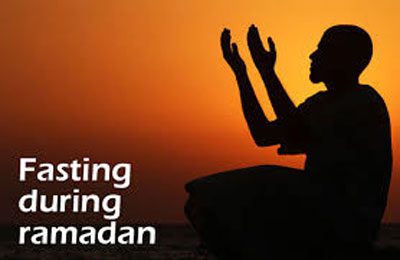 New Delhi:
New Delhi: Muslims around the world fast in this holy month of Ramadan -- from pre-dawn hours to dusk. Health experts have a word of caution for those who may be diabetic.
Due to prolonged fasting, diabetics undergo metabolic changes as they don't eat anything for long, say medical experts.
Prolonged fasting results in metabolic changes which necessitate adjustment in diabetes management plan, in terms of dietary intake and medication schedule. During Ramadan, most people take two large meals with a gap of 12 to 15 hours, said Atul Luthra, senior consultant physician, Fortis C-Doc.
He said carbohydrate and fat intake should be kept under control to prevent blood sugar from rising rapidly during the day, or between sehari, the early morning meal prior to the beginning of the fast, and the iftaar, the ritual breaking of the fast in the evening hours.
Diabetics should not indulge in high-calorie, high-refined food. Rather, they should take food with high fibre content. All patients must be aware of the warning symptoms of low blood sugar and they should not continue with the fast if the symptoms appear, he added.
The problems diabetics face while fasting can either cause hypoglycemia (sudden fall in blood sugar levels), which can cause seizures and unconsciousness, or hyperglycemia (increase in blood sugar).
Doctors add that their condition can worsen with a potentially life-threatening complication called diabetic ketoacidosis which causes vomiting, dehydration, deep gasping breathing, confusion and even coma.
They can also develop thrombosis, which leads to formation of a blood clot inside blood vessels, Luthra warned.
Ansar Ahmad Siddique, a 45-year-old diabetic who religiously fasts during Ramadan, balances his meals to keep his blood sugar level normal.
I observe Ramadan all 30 days. I do have jamun and papaya to keep my sugar level normal. However, if I face any problems, I take medicines, the businessman told IANS.
According to Luthra, Type 1 diabetics, or those who have a history of recurrent hypoglycemia, are at a higher risk if they fast.
Hypoglycemia and hyperglycemia may also occur in patients with Type 2 diabetes but generally less frequently and with less severe consequences as compared to Type 1 diabetics, he added.
S.C. Juneja, endocrinologist at the Diabetes and Health Care Centre in west Delhi, said only those who take insulin, which helps regulate sugar in the bloodstream, once a day can fast.
But those who take it twice or more should refrain from fasting as it becomes necessary to eat after taking insulin, Juneja informed.
Agreed Sujeet Jha, diabetologist at Max Hospital (Saket) in south Delhi. He said that even if diabetics wish to fast, they must not skip their medicines.
Patients on insulin should completely avoid fasting. Having nothing for almost 14-15 hours a day at a stretch can lead to low sugar levels. They should also be well hyderated, Jha said.
Experts say that patients should regularly consult doctors and follow the suggested medication.
Juneja said there should be frequent monitoring for diabetics to ensure safe fasting, and they should eat more fruits and vegetables along with high fluid during the non-fasting period.
Carbohydrate and fat intake should be kept under control to check blood sugar. Diabetics should not take high-calorie and high-refined foods. They should instead take food high on fibre content, Juneja said.
Sweets must be shunned while breaking fast.
Patients should include fruits, pulses, vegetables and curd in their diet while breaking fast. There should be least sugar in drinks, and fried food should be avoided. Items containing starch like basmati rice and wheat chapati can be taken, Luthra advised.
Jha added: Patients should take a walk or exercise in the evenings.
 New Delhi: Muslims around the world fast in this holy month of Ramadan -- from pre-dawn hours to dusk. Health experts have a word of caution for those who may be diabetic.
New Delhi: Muslims around the world fast in this holy month of Ramadan -- from pre-dawn hours to dusk. Health experts have a word of caution for those who may be diabetic.